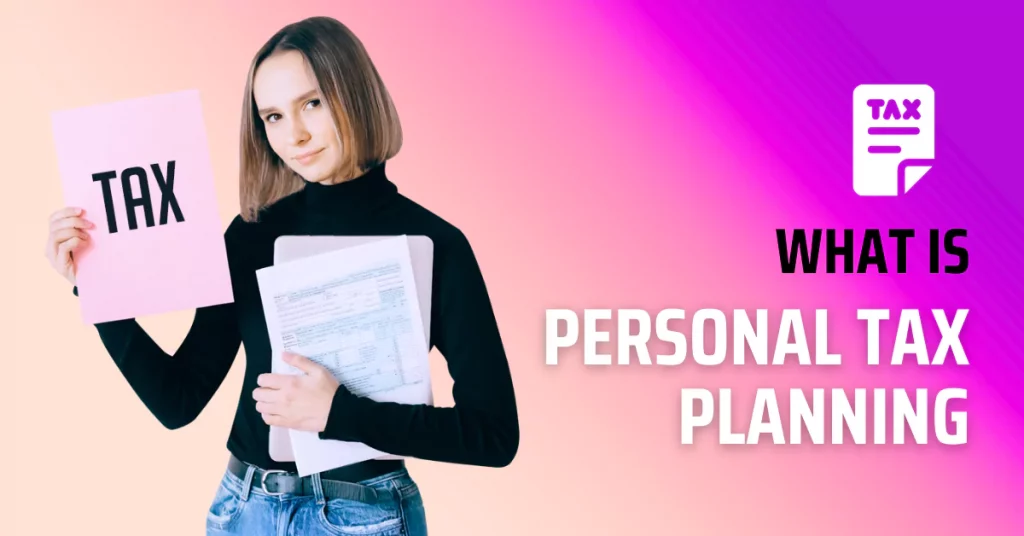We believe you have heard about tax planning, tax management, cash flow, and mutual funds. There are lots of technical terms related to tax planning. Hi folks, We are from IndiaTaxfile on this side. We are a team of chartered accountants and lawyers who have 10 years of experience in this field.
First let’s talk about the definition of personal tax planning, Personal tax planning refers to the systematic process of managing finances in the perfect way of minimizing your tax liability while ensuring legal requirements. It helps to optimize your tax outcome.
Key Takeaways
- Personal tax planning minimizes tax liability while meeting legal requirements.
- Importance includes reducing tax burden, managing cash flow, and adapting to life changes.
- Strategies involve utilizing tax-saving instruments like mutual funds and PPF.
- Retirement planning options include EPF and NPS for extra tax benefits.
- Housing loan deductions and health insurance premiums offer tax-saving opportunities.
- Common mistakes to avoid include last-minute planning and ignoring tax law changes.
- Seek advice from professionals like IndiaTaxFile for informed decisions.
Importance of Personal Tax Planning
Decreased Tax Burden
- Effective tax planning allows you to reduce the amount of tax you owe.
- With the help of deductions, exemptions, and credit you can retain more of your income.
Cash Flow Management
- Optimizing tax planning ensures that you allocate resources efficiently.
- To maintain a healthy cash flow, Anticipating tax planning helps a lot.
Managing life Changes
- There are a lot of life events such as marriage, retirement, and buying a property directly that you are taxed.
- Personal tax planning helps to manage this change and minimize its impact on your taxes.
Investment Decisions
- It helps you make informed about investment choices.
- Many tax-saving instruments like mutual funds, PPF, and ELLS can help you in after-tax returns.
Business Optimizations
- Business owners and Entrepreneurs have lots of benefits from tax planning.
- It is minimizing taxable income, maximizing deductions with proper tax regulations
Some Tax-Saving Strategies
Personal tax planning is not about playing a number game. It is a strategic and systematic process for managing your finances.
With the help of different tax strategies, you can legally reside in your tax liability. I have mentioned some effective tax-saving strategies here.
Mutual Funds
Mutual funds collect money from multiple investors to invest in stocks, bonds, and some other securities that have tax benefits under section 80c of the tax-income tax act.
Mutual funds have some benefit in tax that is the investment in ELSS can save up to ₹1.5 lacks on taxes. If you hold your investment for over a year, any profit you make up to ₹1 lakh is tax-free.
Public Provident Fund (PPF)
PPF is a long-term saving scheme where your money is locked in for 15 years. It helps you save on taxes. You can claim a deduction under Section 80c for the money you put into PPF with interest you earn with tax-free money.
Retirement Planning
for retirement planning, you can consider.
- Employee Provident Fund(EPF): You can deduct contributions from taxes and the interest you earn is tax-free.
- National Pension System(NPS): You can get extra tax benefits under Section 80CCD(1B).
For early retirement planning, you get the most out of tax advantages.
Housing Loan and Deductions
When it comes to housing loans and tax deductions:
- Home Loan Interest Deductions: you can claim up to ₹2 lakh as a deduction on home loan interest under Section 24(b), you can also have an extra ₹1.5 lakh deduction under Section 80C for principal repayment.
- Home Property Income: If you have a second property, and you are thinking about renting it to make more money then you can deduct municipal taxes, standard deduction, and interest paid on the loan for the second property from your taxable income.
Health Insurance and Medical Expenses
For health-related expenses-
- Health Insurance Premiums: You can claim a deduction under section 80D for premiums paid on health insurance policies. and the amount you can deduct depends on the age of the insured and family member covered in the policy.
- Medical Bills and Treatment Expenses: You have to make sure to keep records of all medical bills, treatment expenses, and prescriptions then you can also claim deductions for these expansions under section 80DDB for specified illness
Exemptions and Rebates
For exemptions and rebates:
- House Rent Allowance(HRA): If you renting a house then you can claim an exemption on your House Rent Allowance(HRA) under Section 10(13A) it depends on your salary and the rent you pay
- Leave Travel Allowance(LTA): You also can claim an exemption for Leave Travel Travel Allowance (LTA) on domestic travel expenses. There are some conditions, such as traveling within India and using the exemption only twice within a block of four years.

Common Mistakes to Avoid in Tax Planning
As you know, personal tax planning is an important part of financial management, but even a well-known individual can make mistakes. Let’s explore the common mistakes to avoid in tax planning.
Last-Minute Tax Planning
Last-minute tax planning can create waiting until the last minute.
- It increases the chances of missing out on tax-saving opportunities
- A bad decision may lead to a less favorable outcome.
to prevent this it is essential to begin planning early in the year because then you have enough time to explore options. You can also mark important tax dates on your calendar to stay informed and seek advice from a tax advisor.
Ignoring Tax-Saving Opportunities
When you miss the tax-saving opportunities, you are missing chances to lower your taxes. This happens because :
- Lack of exploration all the way to save taxes.
- Missing deductions and exemptions.
to prevent this, you should research different tax-saving options like ELSS, PPF, and NPS to understand how they work Stay informed about any changes in tax laws so you can adjust your tax-saving strategies accordingly.
Not Staying Informed about Tax Law Changes
It would help if you stayed informed about changes in tax laws otherwise it creates problems because Tax laws are not always the same and can change over time this can affect your tax planning strategies and not knowing about updates can create problems too.
So to prevent this, it is important to stay updated by regularly checking official government websites for tax-related announcements and updates. And if you are a busy type of guy, seek advice from tax professionals like Indiataxfile to stay updated.


